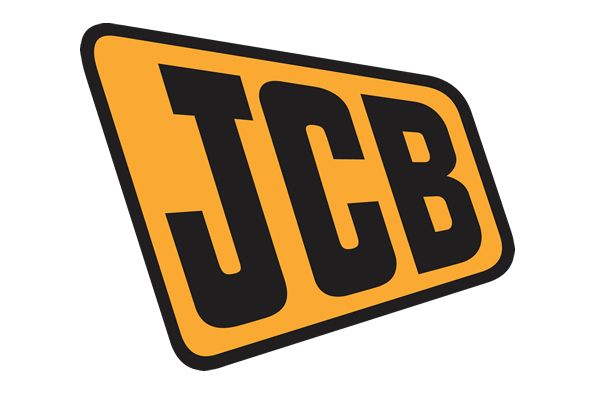
Information On JCB Digger
Facts about JCB
The JCB Company, based in Rocester, England, manufactures construction, agriculture, waste handling, and demolition equipment. It has 22 factories in Asia, Europe, North America, and South America that manufacture over 300 different machines, including backhoes, excavators, tractors, and diesel engines. Its products are sold in over 150 countries.
The History Of The JCB Company
Joseph Cyril Bamford formed the JCB Company in Uttoxeter, Staffordshire, England, in October 1945. He leased a 3.7 by 4.6 m lock-up garage (12 by 15 ft). He made his first car, a tipping trailer, from war surplus materials, with a welding kit he bought second-hand from English Electric for £2-10s (= £2.50). The sides and floor of the trailer were made of steel sheet that had previously been used in air raid shelters. He sold the trailer at a local market for £45 (plus a part-exchanged farm cart) on the same day his son Anthony was born, and built another trailer right away. He used to work in Eckersley's coal yard in Uttoxeter, making cars. The original trailer as well as the welding kit have been saved.
The first JCB welding package
JCB's very first car (a farm trailer)
Six people worked for the company in 1948, and it produced Europe's first hydraulic tipping trailer. It relocated to an old cheese factory in Rocester in 1950, employing six people. He started painting his goods yellow a year later. In 1953, he introduced his first backhoe loader, which was the first time the JCB logo appeared. Derby Media and advertisement designer Leslie Smith collaborated on the project. The "hydra-digga," which combines the excavator and the major loader into a single all-purpose tool for the agricultural and construction industries, was introduced in 1957.
JCB's hydraulic tractors made their debut in the North American market in 1960, and have since proven to be a long-term success. JCB is, and continues to be, the world's leading brand. JCB had sold over 3,000 3C backhoe loaders by 1964. The JCB 7 was the first 360-degree excavator launched the following year.
The Loadall computer was first introduced in 1978. The following year, JCB began operations in India. The company formed a joint venture with Sumitomo of Japan to manufacture excavators in 1991, which lasted until 1998. A JCB factory was completed two years later in Pooler, Georgia, near Savannah, and a factory in Brazil was opened the following year.
The twenty-first century
The European Commission fined JCB €39.6 million in December 2000 for breaching European Union antitrust law. The fine was linked to distribution limitations outside of allotted territories, transactions between approved distributors, incentives and fees that limited out-of-territory sales, and the occasional mutual fixing of resale rates and discounts across various territories. JCB filed an appeal, and the European Court of First Instance upheld parts of the appeal while lowering the initial fine by 25%. JCB filed a final appeal with the European Court of Justice, but it was denied in 2006, with the court raising the reduced fine by €864,000.
The first engine built and produced by JCB, the JCB444 diesel engine, went into production in 2004. For the first time in nearly four decades, JCB acquired a business in 2005, when it purchased Vibromax, a German equipment manufacturer. The company also opened a new factory in Pudong, China, in the same year. By 2006, the company had grown to 4000 employees, more than doubling its 1975 workforce.
Following the launch of an architectural design competition operated by RIBA Competitions in 2007, planning for a new £40 million JCB Heavy Products site began, and by the following year, the company had begun to relocate from its old site in Pinfold Street in Uttoxeter to the new site beside the A50; the Pinfold Street site was demolished in 2009. JCB announced plans to make India its largest manufacturing hub during that year. Its factory in Ballabgarh, Haryana, was supposed to be the world's largest backhoe loader factory.
JCB cut 2,000 jobs during the recession, but announced in 2010 that it would hire up to 200 new employees.
Until 2016, the organisation was a member of the CBI business lobbying community. Following the Brexit vote in June 2016, it was announced in October 2016 that JCB had left the CBI. Since 2007, JCB and associated Bamford organisations have donated £8.1 million in cash and kind to the Conservative Party in the United Kingdom. Anthony Bamford, the chairman of JCB, donated £100,000 to Vote Leave, the official pro-Brexit party.
The organisation encourages children of all ages to engage in constructive play, and has launched JCB Explore, a website dedicated to encouraging children and their parents to participate in outdoor activities.
About JCB Excavators
The JZ70 (7-tonne zero tail swing excavator) to the JS460 are all part of JCB's X Series, an improved variant of the J series Tracked 360° excavators (46-tonne tracked excavator).
At the 2008 Con expo, JCB unveiled a new top-of-the-line JS520 that featured a new style paint job with black rams. The JS130W to the JS200W are wheeled 360° excavators. A monoboom or a triple-articulated boom may be used to build machines. The company's electric digger (19C-1E) won the MacRobert Award, the most coveted prize for engineering invention in the United Kingdom, in July 2020.
Click on this link for more detail on the JCB mini excavators:
https://www.jcb.com/en-gb/products/mini-excavators
Copyright © 2021 M&R Digger Hire London